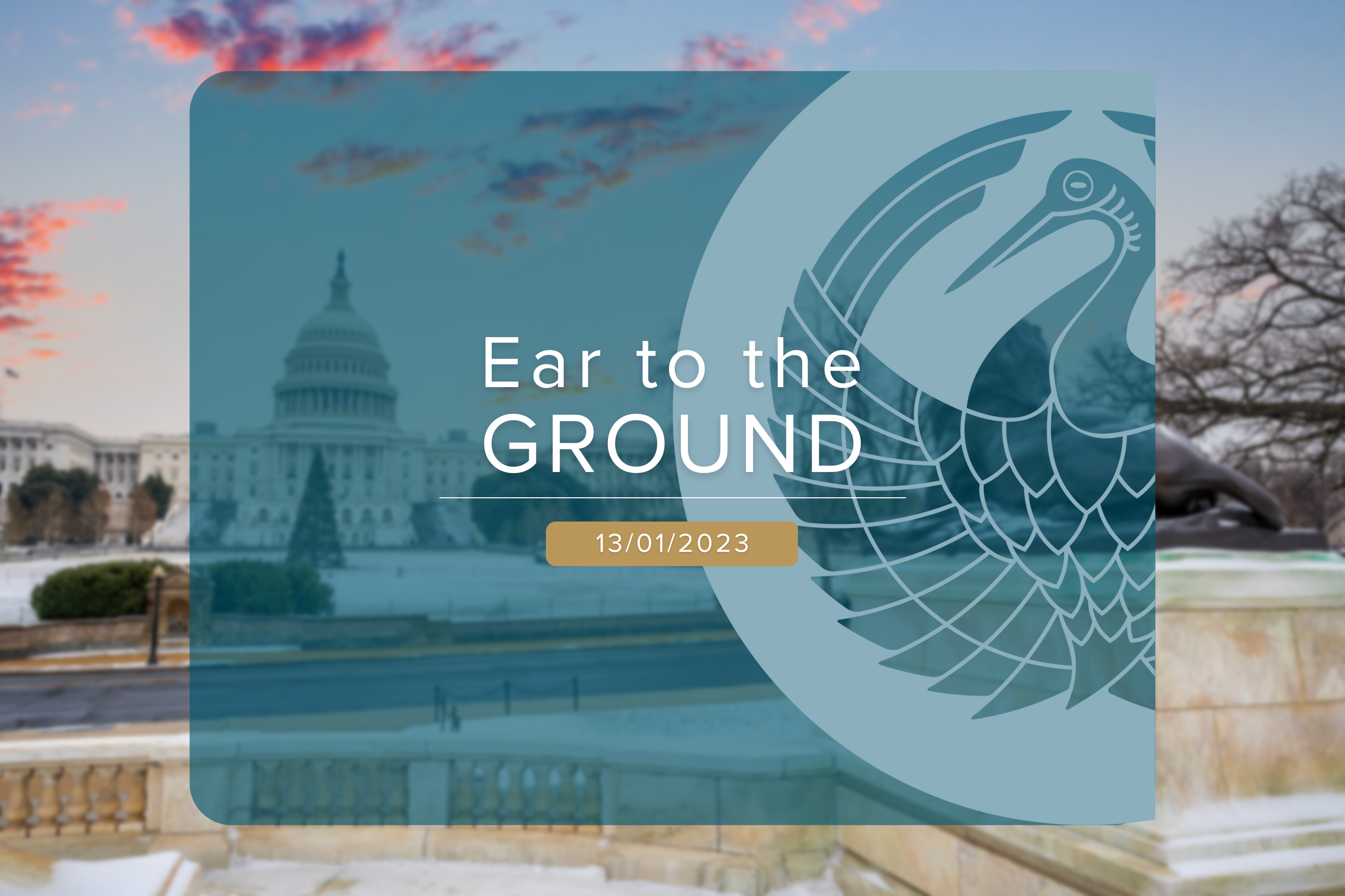Ear to the ground
13 January 2022

This week we saw the World Bank make a change to its investment outlook for 2023. The organisation had previously forecast that the global economy would grow by 3% this year. They have now reduced this forecast to 1.7%. The brunt of the downgrade comes from developed markets, where they have reduced growth expectations from 2.2% to 0.5%. The US and Euro area both saw downgrades of 1.9%, with the former now expected to post growth of only 0.5% whilst the latter is forecast to post no growth. Japan did a little better, its forecast down only 0.3% compared to previous and expected to post growth of 1% in 2023.
It wasn’t just developed markets which saw a downgrade, with emerging markets and developing economies as a collective seeing their growth forecast downgraded from 4.2% to 3.4%. The downgrade includes countries such as India and China.
Reasons cited by the organisation for the weaker forecasts included the policy tightening which we have seen, aimed at containing the high inflation rates which we have seen. Worsening financial conditions, along with continued disruptions caused by the invasion of Ukraine, were also cited. Whilst a global recession should be avoided, one could be seen if we were to see inflation remain stubbornly higher, tighter than expected monetary policy, financial stress or rising geopolitical tensions.
In the UK meanwhile GDP surprisingly rose in November, posting growth of 0.1% against a negative forecast of -0.2%. It was the service sector, which was the main contributor to this growth, with production output falling, with construction flat.
It was this data which has helped the UK equity market to another positive week, with the FTSE 100 in particular closing at 7,844.07 on Friday, only a whisker away from the intraday high which was seen on the 22nd May 2018 of 7,903.50. There was also a strong performance by the mid-cap stocks during the week, also receiving a fillip towards the end of the week on the back of those stronger UK economic growth figures.
In the US meanwhile it was inflation data which eyes were firmly fixed on. Here we saw CPI released for December at an annual rate of 6.5% to December. This was in line with expectations. It also represented the sixth consecutive month where this inflation rate has fallen. Whilst many underlying items still continue to see price increases, such as energy and food, the rate of change is falling. It is this which the market is focussed on and continues to question the Federal Reserve’s resolute position in that they expect no interest rate cuts this year. The market now expects that further interest rate increases will come in 0.25% bites, rather than the 0.75% and 0.5% levels which we have become accustomed to.
This article is for information purposes only and should not be construed as advice. We strongly suggest you seek independent financial advice prior to taking any course of action.
The value of this investment can fall as well as rise and investors may get back less than they originally invested. Past performance is not necessarily a guide to future performance. The Fund is suitable for investors who are seeking to achieve long term capital growth.
The tax treatment of investments depends on the individual circumstances of each client and may be subject to change in the future. The above is in relation to a UK domiciled investor only and would be different for those domiciled outside the UK. We strongly suggest you seek independent tax advice prior to taking any course of action.
Subscribe Today
To receive exclusive fund notifications straight into your inbox, please complete this form.